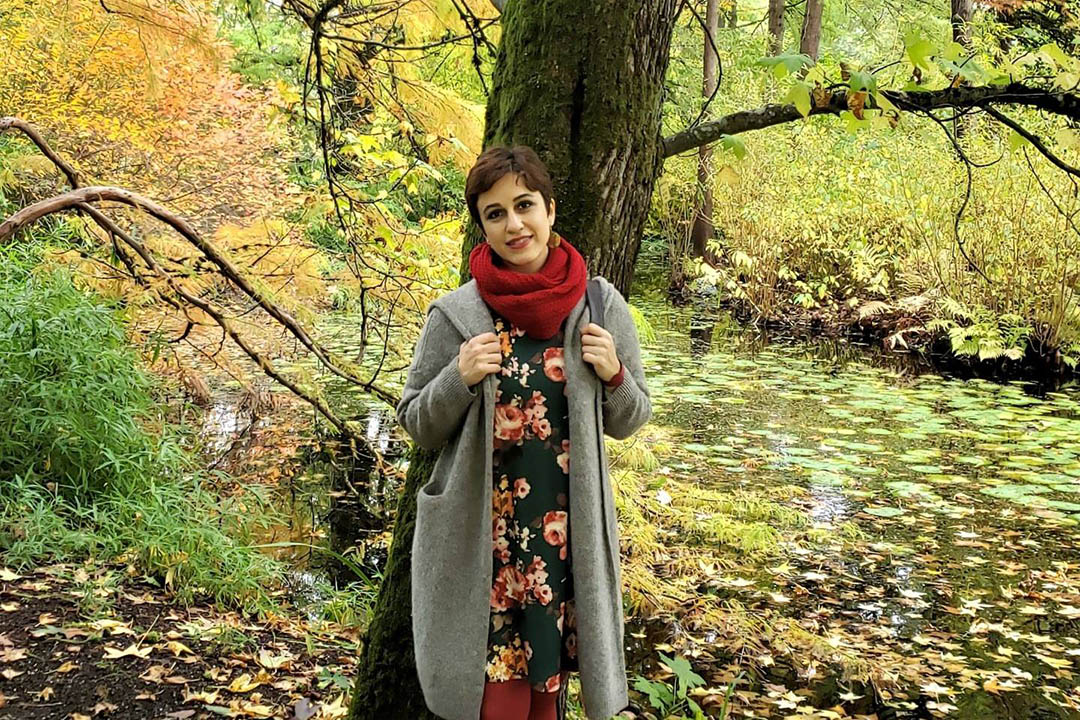
“We wrote that play, together”: USask research paints picture of lived experiences of Iranian women
A University of Saskatchewan (USask) graduate originally from Tehran, Iran, Haleh Mir Miri has experienced firsthand the type of oppression that women can be subjected to under extremist Islamic rule.
By BROOKE KLEIBOER“The nationalist Islamization project has become one of the Islamic Republic’s longest-standing goals, grounded in efforts to rule women’s bodies, beginning right after the revolution in 1979 in Iran,” said Mir Miri, who received a Master of Arts in Women and Gender Studies from USask’s College of Arts and Science this past November.
Mir Miri said that under Islamicist practices, women are alienated from their own bodies and sexual desires. The state fights to control gender roles and dynamics of intimate relationships among its citizens. Exploring how Iranian women who leave the country process the traumatic memories they bring along with them was of particular interest to Mir Miri.
“Women and other sexual minorities understand their lives through multi-layered systemic violence, surveillance, and, as we have seen recently, sometimes even fatal interrogation,” said Mir Miri. “My lived experience as a woman in a country with a history of multi-layered oppression for sexual, gender, ethnic, and labour minorities inspired me to do this research.”
Under the supervision of USask associate professor Dr. Marie Lovrod (PhD), Mir Miri turned to her research as a tool to create a “living story” of how Iranian women experience life in the shadow of complex memories of oppressive conditions.
Study participants engaged in five virtual, three-hour meetings over a period of six weeks, followed by collaborative work on selected written memories. The memories that the group identified as key to themselves were transformed into a virtual play, in which participants had the opportunity to develop a dialogue about sexual policies in the Islamic Republic and how these reflected on conventional Iranian families.
“The distinguishing point of this research is the specific definition of trauma,” said Mir Miri. “Trauma in this study is not something that happens to a person all of a sudden and causes a wound in the mind-body — it is a persistent condition where individuals have less control over their behaviour and ability to lead their lives due to constant monitoring by society and complicit family members.”
Mir Miri introduced the Persian word toroma into the study as a way to describe the trauma associated with being constantly surveilled and threatened with violence if strict lifestyles are not followed. Mir Miri hopes to use these memories for a positive purpose— to inspire “potentially powerful collective healing process where [women who have left Iran] remember and reactivate their power to act against systemic forms of violence.”
“I am trying to revive the memories of the past whose traces can be found in the present while writing a part of the lived history of my country from the lens of women and other gender minorities who seek to create a different future. We wrote that play, together.”
Mir Miri is currently working on publishing a book chapter based on her research in the text Bodies and Beliefs: Purity Culture and the Rhetoric of Religious Trauma, edited by Victoria Houser and Mari Ramler and supported by Duke University Press. The book is slated for publication in 2024.
Canadian health-care professions have built trauma-informed care into the fabric of their service models, and Mir Miri hopes some of her research results can be used to inform other health-care practitioners of potentially useful methods to inspire healing.
“For me, this research is a part of a more significant project that I have in mind, and I am delighted that I took baby steps toward it,” said Mir Miri.
Support for the study was provided by the USask College of Graduate and Postdoctoral Studies.
This article first ran as part of the 2023 Young Innovators series, an initiative of the USask Research Profile and Impact office in partnership with the Saskatoon StarPhoenix.

